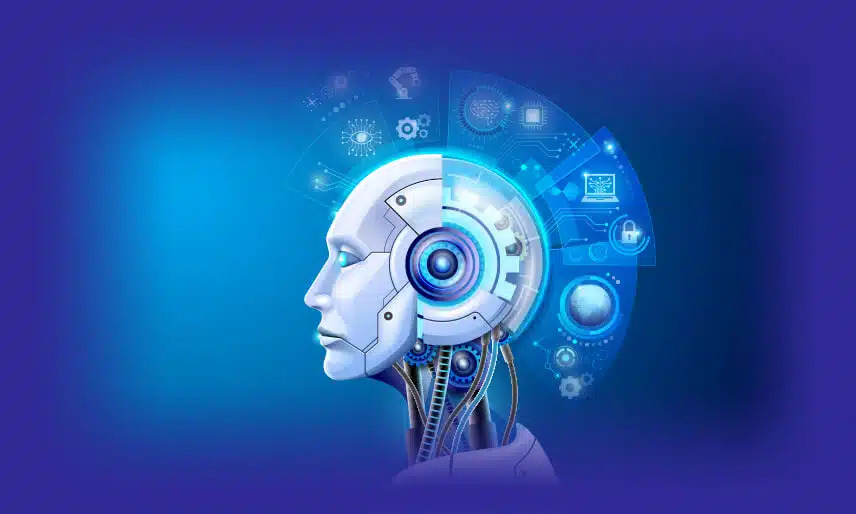
Generative AI, a subset of artificial intelligence, is revolutionizing creative industries by enabling machines to mimic human creativity. This technology uses algorithms to generate new content such as images, music, text, and even videos, based on patterns and data it learns from. The application of generative AI in various sectors like art, design, music, and literature has sparked new opportunities and challenges, making training in this field increasingly crucial.
Applications of Generative AI in Creative Industries
Generative AI has found diverse applications across creative industries, enhancing productivity and creativity in unprecedented ways:
- Art and Design
In art and design, generative AI tools can autonomously create unique visual artworks based on input criteria. Artists can leverage these tools to explore new styles, generate complex patterns, and even assist in the conceptual phase of art creation. For instance, software like DeepDream and StyleGAN has enabled artists to produce surreal and imaginative pieces that blend human vision with machine-generated elements.
- Music Composition
Generative AI is also transforming music composition by generating melodies, harmonies, and rhythms. Platforms like Amper Music and AIVA provide composers with tools to create original music compositions quickly and efficiently. These tools analyze existing music data to generate compositions that resonate with various genres and styles, demonstrating the versatility and potential of AI in music creation.
- Literature and Writing
In literature, AI-driven text generation models such as GPT-3 have been used to generate coherent and contextually appropriate text. Authors and content creators can harness these models to assist in drafting stories, articles, and even poetry, providing novel perspectives and insights. This application not only aids in generating content but also sparks creativity by suggesting unique narrative directions.
- Film and Animation
Generative AI has also impacted the film and animation industries by automating certain aspects of production. AI-powered tools can generate realistic scenes, special effects, and character animations, reducing production time and costs. For example, tools like Runway ML and DeepMotion enable filmmakers and animators to create lifelike animations and visual effects with minimal manual input.
Case Studies: Real-World Applications of Generative AI
To illustrate the practical applications of generative AI in creative industries, consider the following case studies:
- The Painting Fool
Developed by Simon Colton, The Painting Fool is an AI artist capable of creating original paintings based on its interpretation of visual stimuli. This AI-driven artist experiments with various styles and techniques, demonstrating how generative AI can autonomously produce artwork that blurs the lines between human creativity and machine intelligence.
- Magenta Project by Google
Google’s Magenta Project focuses on exploring the role of AI in creating art and music. One notable application is the creation of NSynth Super, a neural synthesizer that generates new sounds by interpolating between existing audio samples. This project highlights AI’s potential to innovate in music composition and sound design, pushing the boundaries of creativity in the music industry.
- ScriptBook
ScriptBook utilizes AI to analyze scripts and predict their potential box office performance. By analyzing story elements and predicting audience engagement, ScriptBook assists filmmakers and studios in making data-driven decisions during script development and production planning. This application showcases AI’s ability to optimize creative processes and enhance decision-making in the film industry.
Generative AI Training In Hyderabad: Meeting Industry Demands
As generative AI continues to reshape creative industries, the demand for skilled professionals proficient in AI technologies is growing. Hyderabad, known for its vibrant tech ecosystem, has emerged as a hub for generative AI training institutes catering to the needs of creative professionals.
Why Hyderabad for Generative AI Training?
Hyderabad boasts a robust infrastructure of tech companies and educational institutions specializing in AI and machine learning. Institutes such as [Institute Name] offer specialized courses in generative AI tailored for creative professionals. These courses cover foundational AI concepts, advanced generative models, and hands-on projects that prepare students to apply AI technologies in art, music, writing, and filmmaking.
Curriculum Highlights
Courses in generative AI training typically include:
Fundamentals of AI and Machine Learning: Understanding neural networks, deep learning, and generative models.
Generative Models: Exploring GANs (Generative Adversarial Networks), VAEs (Variational Autoencoders), and other generative AI architectures.
Application Areas: Practical applications in art generation, music composition, text generation, and visual effects.
Project-Based Learning: Hands-on projects that simulate real-world creative challenges and opportunities.
Industry Partnerships and Career Opportunities
Generative AI training institutes in Hyderabad often collaborate with industry partners to offer internships and placements in leading creative companies. Graduates with skills in generative AI find opportunities as:
AI Artists and Designers
Music Technologists
AI Writers and Content Creators
Film and Animation Technicians
Conclusion:
Generative AI is a transformative force in creative industries, empowering artists, musicians, writers, and filmmakers to explore new realms of creativity and efficiency. As the demand for AI-driven innovation grows, specialized training programs like those offered in Hyderabad play a crucial role in equipping professionals with the skills to harness generative AI’s potential. By bridging the gap between technology and creativity, Generative Ai Training In Hyderabad ensures that the future of creative industries remains vibrant and innovative.
The integration of generative AI in creative industries not only enhances productivity but also inspires new forms of artistic expression, making it an indispensable tool for the modern creative professional.